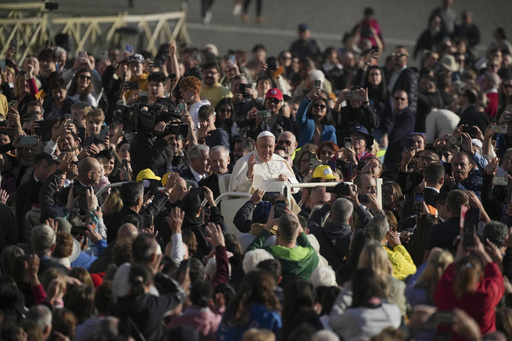Pope Francis has urged the diocese of Rome to take action in response to the escalating housing crisis impacting the city. This appeal comes as the imminent Holy Year celebrations are predicted to attract over 30 million pilgrims to Rome in 2025, intensifying the ongoing dialogue about surging rental prices.
In a letter addressed to church leaders and priests of local religious orders, Francis requested that any available church properties be made accessible for the homeless or individuals facing eviction due to increasing rental costs. His correspondence highlights the dual challenge that the Vatican faces: while many pilgrims will seek accommodation during the jubilee, local residents are increasingly struggling to find affordable housing.
The surge in demand for short-term rentals, especially in areas close to the Vatican, has exacerbated a trend where local inhabitants are being driven out of their homes. Property owners are leaning towards leasing their spaces through short-term rental platforms like Airbnb, which, along with similar services, is contributing to a wider crisis that is also affecting other cities in Italy, including Venice and Florence, as well as various parts of Europe. This situation has sparked protests among local residents who are frustrated by the impact of tourism on their communities.
In his letter, Pope Francis emphasized that while Rome’s Catholic institutions are gearing up to accommodate millions of visitors during the jubilee, it is equally important to extend compassion to the city’s residents. He called for a “courageous gesture of love” from those within the church to offer any vacant housing or apartments to help address the housing emergency faced by many in Rome.
The Pope expressed a strong desire for all diocesan entities that own real estate to actively contribute to alleviating the housing crisis. He urged these organizations to demonstrate charity and solidarity to instill hope for the thousands experiencing housing insecurity within the city.
The Catholic Church is a significant property holder in Rome, boasting a range of real estate assets that include commercial buildings, residences, convents, and monasteries. As such, the church has the potential to make a meaningful impact on the local housing situation during this critical period.


